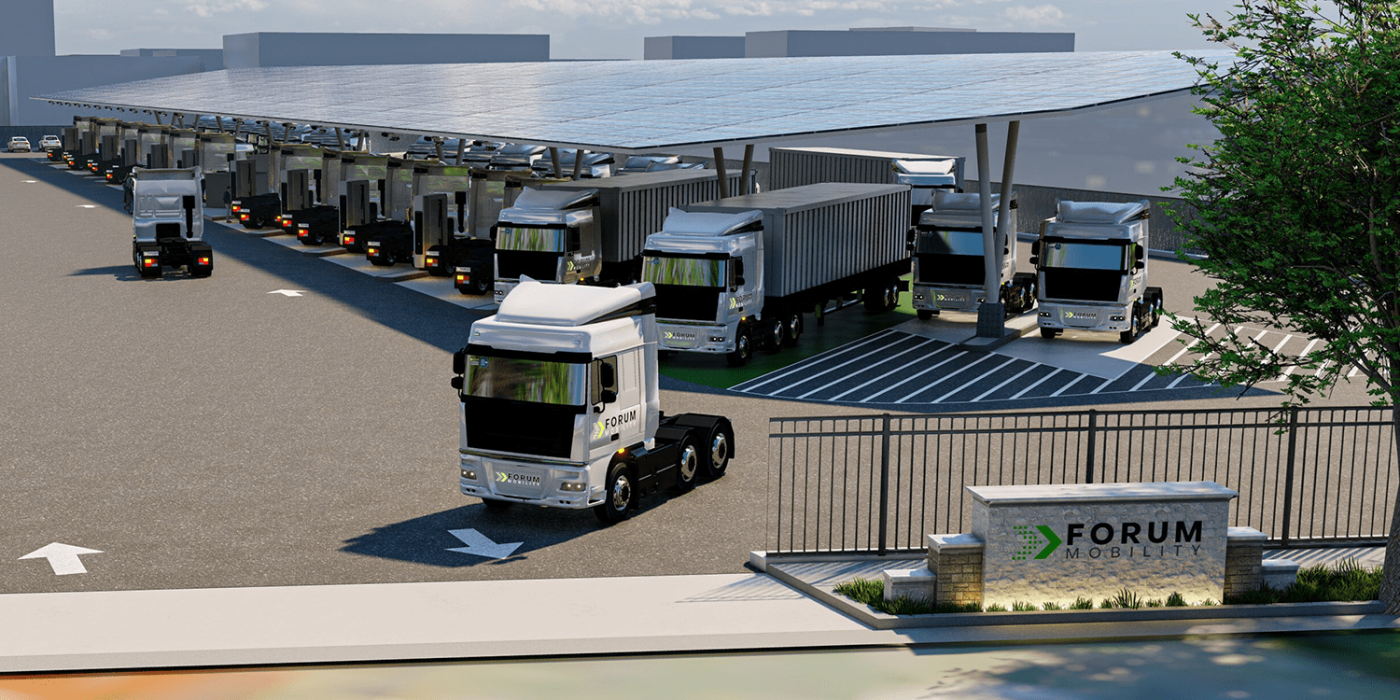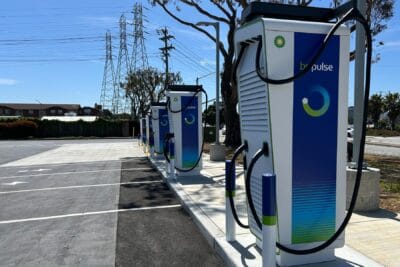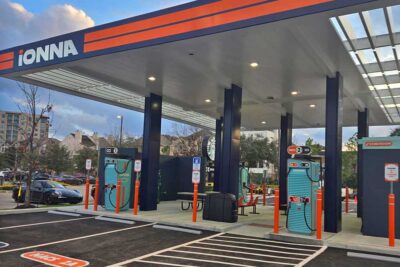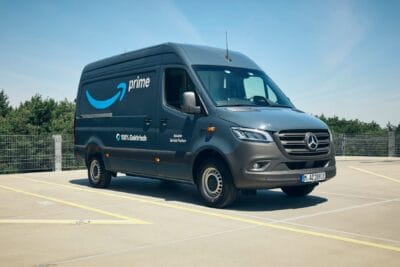New JV focuses on truck charging at largest US ports
To start with, Forum Mobility has identified ten sites in Northern and Southern California, focusing on the ports of Long Beach and Oakland. Forum plans to install depots capable of simultaneously charging medium- and heavy-duty trucks at the harbours and along routes leading to warehouses.
The company expects to break ground in 2023. This tight schedule is due to CBRE being on board as “a partner on the real estate side,” said Matt LeDucq, Forum Mobility founder and CEO, in an interview with Freight Waves. “We have site control. And we’re going through the permitting and getting the power and all the things you need to do in development.”
The choice of locations is also backed by funding programs in California released by the energy commission CEC and CARB. Grants are available specifically for drayage trucks and infrastructure required to haul containers into and around ports. Proposed regulations from the California Air Resources Board would require all of California’s drayage fleet – approximately 30,000 trucks – to be zero-emission by 2035. The CEC, therefore, estimates California needs 157,000 heavy-duty EV chargers — 53 a day — by 2030 to meet all draft regulations.
And the transition has started. The Port of Long Beach last November received a $30.1 million grant from the US Department of Transportation to deploy the nation’s largest fleet of electric vehicles for cargo handling at a single container terminal. About 17 per cent of the cargo-handling equipment at the Port is powered by electricity, making it one of the largest fleets of its kind in the United States. Also, in Oakland, projects are underway, such as the automatic charging of electric vehicles via Rocsys as reported.
As for Forum Mobility, in addition to the $300 million from CBRE and $100 million pledged by Homecoming Capital to the joint venture, Forum closed a $15 million Series A funding round. New participants were CBRE Investment Management, Amazon’s Climate Pledge Fund and Elemental Excelerator. Seed-round investors Obvious Ventures, Edison International, Overture, and Homecoming Capital also participated.
The capital will be used to grow the team and invest in other revenue streams. Forum exited stealth mode in December 2021 and since provided four trucks to drayage company Hight Logistics in Long Beach along with fast-charging systems. A fifth truck is due in a few months, and Forum has adopted a Truck-as-a-Service model (TaaS).
Target customers are, therefore, small logistics companies with only ICE trucks. These have been banned from port operation this January, as LeDucq told the logistics blog. “Working through the OEMs and the dealerships is a wonderful way to reach those folks,” Leducq said. “As dealerships are moving electric trucks, it’s going to be increasingly important for them to deliver a truck that has a place to charge every night.”
Drivers also could opt to participate in Forum’s TaaS operations comprising a fully charged truck in a parking lot with a maintenance package for a monthly fee that includes electricity.
Forum Mobility is working with various OEMs but makes no mention of names. It is also unclear who they may work with to install the truck charging infrastructure. A rendering of such a depot on the company’s website shows a covered facility with charging stations arranged as drive-throughs. Thus, both rigid motor vehicles and tractor-trailers with and without semitrailers can access the charging points.
Again, TaaS comes against the backdrop of state regulation. California adopted the Advanced Clean Trucks rule in 2020, requiring manufacturers to sell a gradually increasing proportion of electric trucks, vans and pickup trucks from 2024 until 2035. By 2045, every new commercial vehicle sold in the state should have zero-emission propulsion.
In December 2022, the California Energy Commission (CEC) reportedly followed up with ZEV infrastructure funding. Of the total $2.9 billion, the largest portion – $1.7 billion (€1.6 bn) – will be invested in new charging facilities for medium and heavy-duty electric vehicles by 2026.





0 Comments